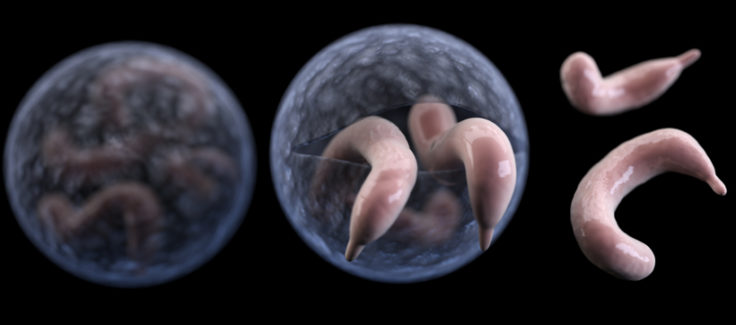It’s finally summertime, you know what that means! Time to relax in the pool and enjoy the refreshing water on a hot, sunny day. Each season brings new surprises, and this one won’t be the exception. Today we discuss a surprising hot topic circling news sites: cryptosporidium parasites.
Recently there have been an increase of reports on dangerous parasites contaminating America’s pools. This summer, the Centers for Disease Control and Prevention (CDC) along with local health departments, are on a mission to help keep pool owners aware of the unwanted parasites that could contaminate recreational pools, hot tubs and water parks. This specific parasite, cryptosporidium, is more difficult to control than others once an outbreak has occurred; however, it is very much preventable with awareness and water quality control.
What is cryptosporidium, and how can it affect you?
Cryptosporidium, or “crypto,” is a microscopic parasite that causes diarrhea. This parasite is found in the fecal matter of a person who has been infected by crypto. Crypto is most commonly spread through water and is the leading cause of waterborne disease among humans in the United States. Those who become infected by the parasite can experience prolonged diarrhea for 1-2 weeks. While anyone can get sick by Crypto, certain groups such as young children, pregnant women, and individuals with weakened immune systems are more likely to become seriously ill when infected.
Individuals who are infected with the parasite can experience symptoms beginning 2 to 10 days after becoming infected. Common symptoms can include:
- Watery diarrhea
- Stomach cramps or pain
- Dehydration
- Nausea
- Vomiting
- Fever
- Weight loss
Now you may be thinking, what about the chlorine? Shouldn’t it be able to kill the parasite? While standard levels of chlorine kill most germs within a few minutes, crypto can be extremely hard to kill. This parasite is protected by an outer shell that allows it to survive outside the body for long periods, which makes it very tolerant to chlorine disinfection. In fact, crypto can survive up to 10 days even in properly treated water.
How is crypto spread?
There have been several community outbreaks of crypto linked to drinking recreational water contaminated by the parasite.
Crypto can be spread by:
- Putting something in your mouth or accidentally swallowing something that has come in contact with the infected stool.
- Swallowing recreational water contaminated with crypto.
- Eating uncooked food contaminated with crypto. Fruits and vegetables should be thoroughly washed before consuming.
How can I prevent a crypto outbreak at my pool?
While crypto may seem scary, it is completely preventable. There are a few key steps to take that can help assure your pool is safe and can remain open all summer long. If your pool does have a crypto outbreak, there are guidelines the CDC tells pool service providers to follow in order to completely eradicate the parasite, however these do not replace your local or state health department’s guidelines or regulations for killing crypto parasites. American Pool always follows these steps correctly and can make sure your pool is cleaned and safe to use again. Below are the CDC’s top prevention tips for pool owners and service providers. If you have any questions feel free to contact us, or visit the CDC’s webpage about cryptosporidium to learn more.
Top Prevention & Control Tips:
- Don’t swim or let your kids swim sick with diarrhea! Period!
- If diarrhea is caused by crypto, wait 2 weeks after symptoms have stopped before swimming again. No exceptions!
- Swallow as little water as possible while swimming.
- Rinse off in the shower before getting in the water to help remove any germs and oils on your body that could contaminate the pool and hinder the chlorine decontamination process.
- Take kids to the bathroom often, and check diapers in a diaper-changing area — not right next to the pool.





